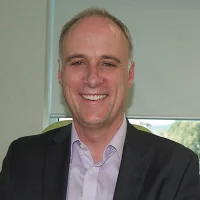Articles / Ethics of growth hormone prescribing in kids

Safety and supervision are key.
It is an ethical question without always a clear answer, says paediatric endocrinologist Associate Professor Gary Leong, who is lecturing on paediatric growth disorders on 30th August.
Leong treats children who are eligible for PBS-subsidised growth hormones (which costs around $35 per script) as well as a small number of children who are ineligible under the PBS.
For children who are not eligible under the PBS, parents must pay privately, which costs around $15,000 per year.
Most children receiving growth hormone therapy in Australia under the PBS National Growth Hormone Program have severe short stature (< 1st centile on growth chart), with or without growth hormone deficiency or with various genetic syndromes associated with short stature, such as girls with Turner syndrome.
However, more and more parents are asking for growth hormone therapy for their children because their parents want them to be taller for social reasons, not because the child is deficient in growth hormone, or even with short stature, Leong says.
“If they’re willing to pay up to $15,000 every year, they’ve got every right to make this decision to treat their child with growth hormones, but with the informed knowledge that it may not necessarily increase their final height, but just get them faster to their final adult height,” Leong says.
“I look at it and say: at least I’m going to supervise their therapy, so it’s done safely without side effects.”
When communicating with parents, Leong stresses the potential long-term side effects of growth hormone therapy and lets parents know that growth hormones may only increase total height by approximately one centimetre per year of treatment at most, though some children can respond better than this.
“I monitor the child’s growth and puberty and blood hormone levels every six months and perform a bone age x-ray every year to see if the child is responding and to ensure the hormone is not causing any harm,” he says.
To determine if the child has serious medical conditions restricting stature growth that could benefit from growth hormone therapy, Leong says monitoring the child’s height over at least six to 12 months is key.
“Most children track on the same centile until they reach puberty, growing at least five to six centimetres every year,” he says.
“The warning sign is if they fall in centiles or growth is less than four centimetres per year.
“If the child is underweight, it could be chronic disease such as coeliac or inflammatory bowel disease, or kidney disease. If the child is short and overweight, it could be a hormonal problem like hypothyroidism or a pituitary problem causing growth hormone deficiency.”
Leong recommends testing blood for hormone deficiencies and bowel or kidney problems. An x-ray of the child’s hand and wrist can reveal other bone problems such as vitamin D deficiency, skeletal dysplasia, or for a girl, Turner Syndrome.
“Finally, don’t ignore a mother’s concerns about their child’s growth because growth hormone deficiency can have serious long-term implications for the heart, bone development and metabolism,” he says.
Associate Professor Gary Leong is a paediatric endocrinologist and child and adolescent obesity expert at The Children’s Clinic in Bondi Junction and at The Nepean Hospital in Penrith.
He is lecturing on paediatric growth disorders in the upcoming Healthed webcast on 30 August – register here to attend.

Alcohol Addiction Assessment and Advice

Premature Ovarian Insufficiency – The New Guidelines

Paediatric Allergic Rhinitis & Immunotherapy

Inhaler Devices

Increase
No change
Decrease
Listen to expert interviews.
Click to open in a new tab
Browse the latest articles from Healthed.
Once you confirm you’ve read this article you can complete a Patient Case Review to earn 0.5 hours CPD in the Reviewing Performance (RP) category.
Select ‘Confirm & learn‘ when you have read this article in its entirety and you will be taken to begin your Patient Case Review.
Webcast TONIGHT
POTS – What You Need to Know